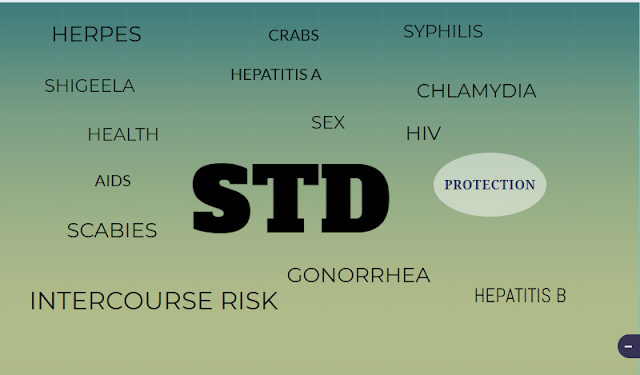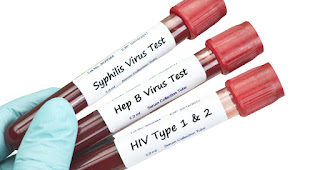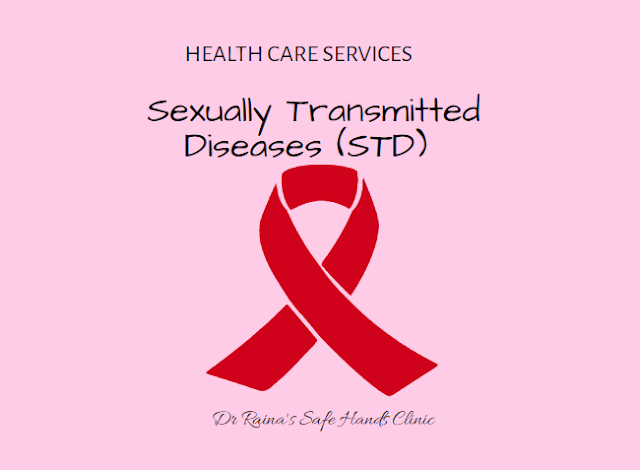Facts about STDs
A condition passed from person to person by sexual contact is the term sexually transmitted illness (STD). You can get an STD with someone who does have the STD through unprotected vaginal, anal, or oral sex.The STD may also be referred to as a sexually transmitted (STI) or venereal (VD) infection.
Sex is not the only way STDs are transmitted. Infections may also be transmitted through needles sharing and breastfeeding, depending on the particular STD.
Symptoms of STDs in men
An STD may be produced without any symptoms. But some STDs cause obvious symptoms. In men, common symptoms include:- pain or discomfort during sex or urination
- Penis, testicles, genitals, buttocks, thighs or mouths sores, bruises, or rash.
- unusual discharge or bleeding from the penis
- painful or swollen testicles
- Specific symptoms can vary, depending on the STD. Find out more about men's STD symptoms.
Symptoms of STDs in women
In many cases, STDs don’t cause noticeable symptoms. In women, typical symptoms of STD are:- pain or discomfort during sex or urination
- Sores, bruises or genitals, thighs, leg and mouth rashes on and around the vagina
- unusual discharge or bleeding from the vagina
- itchiness in or around the vagina
- The symptoms can vary from STD to STD. Information on women's STD signs here.
STDs from oral sex
The only way that STDs are transmitted is not vaginal and anal sex. STD may also be contracted via oral sex or transmitted. STDs can be transferred to the mouth or throat of another person from the genitals of the one person, and vice versa.
Oral STDs aren’t always noticeable. If they do, the sore throat or sores around the mouth or throat are always present. Know about potential signs and oral STD therapies.
STDs and pregnancy
Pregnant women during pregnancy and childbirth will transfer STDs to the fetus. In newborns, STDs can cause complications. In some cases, they can be life-threatening.
Physicians are also urging pregnant women to screen for suspected STDs to help avoid STDs in newborns. Even if you don't have symptoms, your doctor can suggest STD testing.
Your doctor can prescribe antibiotics, antivirals, or other treatments if you test positive for one or more STDs during your pregnancy. In certain situations, they may advise you to give birth via a cesarean delivery to reduce the risk of birth transmission.
Diagnosis of STDs
Doctors are not able to diagnose STDs based on symptoms in most cases alone. If you are informed of an STD by your doctor or other health care professional, they are likely to prescribe testing.
Your health care provider may suggest STD testing, depending on your sexual history, even if you do not have symptoms. This is because in many cases STDs do not cause serious symptoms. Smooth STDs without symptoms can, however, harm or pass on to others.
Providers of health care can use urine or a blood test to diagnose most STDs. You can even take your genitals with a swab. They can even take swabs if you have formed sores.
You can have STDs checked in the clinic or in your doctor's office.
Home trial kits for some STDs are also available, but may not always be accurate. Use them with caution. Check to see if the U.S. The test kit has been approved prior to purchase by the Food and Drug Administration.
It's important to know it's not an STD check for Pap smear. The presence of precancer cells in the cervix is tested using a Pap smear. Because it can be also paired with an HPV test, that doesn't mean you have no STDs with negative Pap smear.
It's a smart idea to ask your healthcare provider about STD testing when you have some form of sex. Many individuals can be checked more frequently than others. Find out whether and what the tests
contain, you will be screened for STDs.
Treatment of STDs
Depending on which STD you have, the recommended treatment for STDs varies. Before the sexual activity starts, you and your sexual partner must be treated successfully for STDs. If not, you can spread infection between you back and forth.
Bacterial STDs
Usually, antibiotics can easily treat bacterial infections.
All antibiotics should be taken as indicated. Continue to take them even though you feel better before you end up taking them all. Let your physician know that after your prescribed medications, or whether the symptoms do not go away or come back.
STD prevention
The only way to prevent STDs is to avoid sexual contact. Yet there are several options to make it better whether you have vaginal, anal, or oral sex.
Condoms offer efficient security from other STDs when used correctly. To ensure maximum protection, vaginal, anal, and oral condoms should be used. Dental dams can also protect oral sex.
Condoms are normally able to avoid fluid-borne STDs, including semen or blood. Yet STDs that spread from skin to skin can not fully protect them. You can contract an STD or pass it on to your partner
if your condom does not cover the infected region of your skin.
Not only STDs but even unintended pregnancies can be covered with condoms to support.







0 Comments